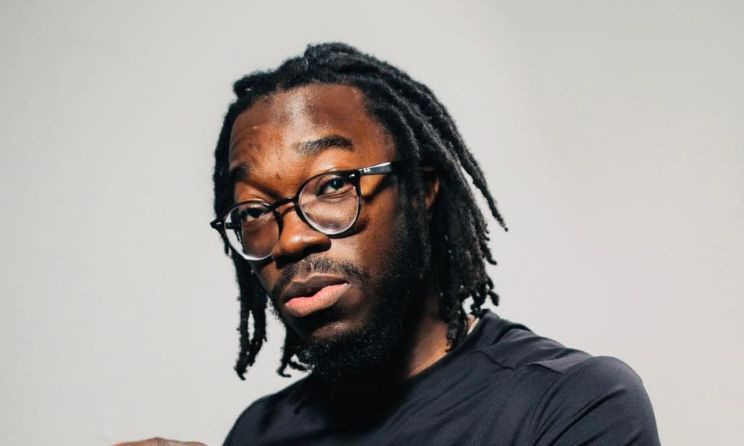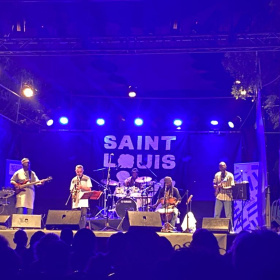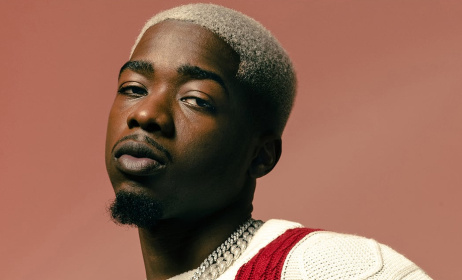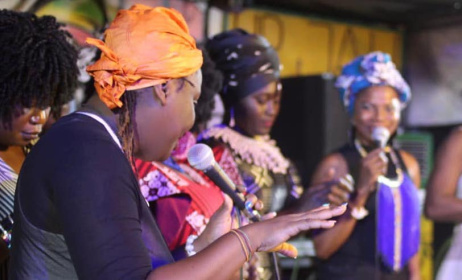Paapa Versa talks about new album Versa Villa
A few hours before an intimate February concert to launch his new album Versa Villa, US-based Ghanaian musician Paapa Versa prances about a small venue in Accra, adding the final touches to the preparations for the night’s production.
 Paapa Versa.
Paapa Versa.
The collection is his first LP in a decade and comprises 10 songs that track his journey to embracing his identity. Before the show, the dreadlocked and bespectacled creative, sporting a confident smile and holding a coffee mug in his hand, sits with me to offer insight into his art, starting with the vision for Versa Villa.
“The intention of this project is to be able to make art for the rest of my life,” he begins. “I’m here making art regardless of whatever is going on in my life.”
The primary thing humans can connect to is vulnerability, Paapa notes, observing that people often shy away from embracing their full spectrum of emotions. “Versa Villa is a story of a young man losing himself and finding himself again. I hope it gives hope to someone who’s struggling to pursue their calling.”
Paapa’s love for music began at the age of four as therapy for his stutter. He wrote his own music as a better way to express himself and drew influences from artists like Stevie Wonder, Michael Jackson, Agya Koo Nimo, Osibisa and Aṣa.
Though his artistic genius has not always translated into commercial success, Paapa remains committed to his craft, seeing music as a creative outlet. He hopes his new collection can inspire and invite others to pursue their own path, no matter how difficult.
For as long as he has practised music professionally, Paapa, whose innovative work summons everything including soul, R&B, hip hop and Afrobeats, has remained the toast of his colleagues like M.anifest and Efya. He also enjoys a dedicated cult following.
“Regardless of whether or not music brings in money, I need to be able to make this for as long as possible – whether that means that I'm making projects of my own or supporting other people on their work,” he says. “I’ve allowed some voices outside of myself to gain importance in my life. And in many of those instances, those voices would cast doubt, not in my talent but in my ability to pursue this and make a living out of it.”
At the core of his work is his continual obsession with communication. He believes that this breakthrough, even with his speech impediment, came from realising the difference between communication and merely talking. “Once I learnt that there was communication, which is literally trying to get whatever is in one’s head into another’s, it changed everything,” he explains.
Paapa considers music as a medium for journaling his most intimate sentiments, saying that “whatever is most personal is most universal. It’s been the one constant thing in my life. Music is where I can be myself, and it’s where I can really connect with people.”
Despite generally rejecting labels, the artist describes his sound as that of an artist-entertainer who balances personal expression with giving the audience what it wants. He also believes that genre-bending is the future of music, and that the notion of a piece of music fitting into a single genre will become less relevant.
I mention during the interview that my favourite tracks off Versa Villa include ‘Call You Mine’ and ‘Versa Villain’. The former ponders an identity crisis, while the latter presents an alter ego that embodies the artist’s current state of mind. I bring up the sustained note in ‘Versa Villain’, noting how it balances out the unsettling chords. Paapa agrees and reveals that it took a flight to Ghana to tweak the song’s instrumentation until it was just right.
Later, when he takes the stage, Paapa is met with the hearty reception of an artist returning from a long hiatus. His long-awaited return is in session.


























Commentaires
s'identifier or register to post comments